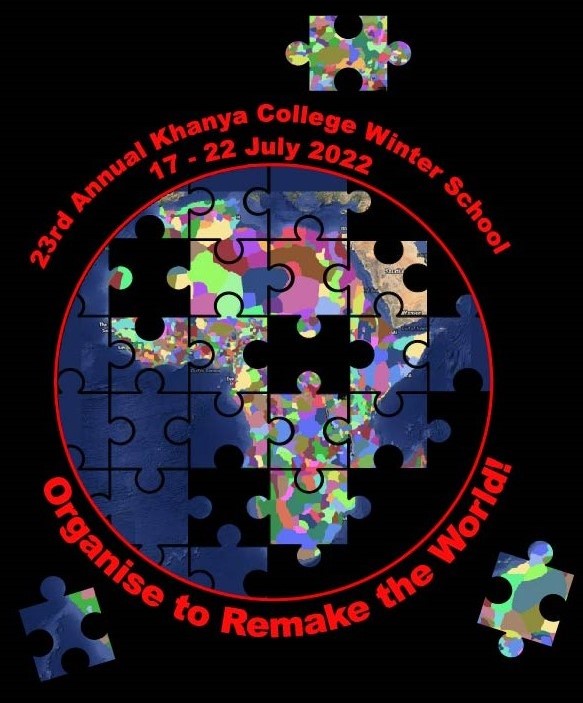It is well known that the Working Class is currently facing many social issues. Poverty, unemployment, racism, and poor service delivery are their daily bread. As the middle classes are busy on Twitter with their hashtags calling for President Cyril Ramaphosa to step down amidst the rising economic crisis, they are just beginning to experience the conditions the majority of South Africans are forced to live under. While the Working Class has been struggling for many years, they have not struggled in silence, throughout history, there have been many cases where the working class responded to the crisis.
The 2nd day of the Winter School began by looking at the different ways the Working Class has responded to this crisis, in some ways the responses were organised through mass demonstrations, in some cases, they were spontaneous like the July 2021 Food Riots that happened in Gauteng and Kwa-Zulu Natal. While the riots started when Former President Zuma was arrested, it was clear that we were already sitting on a ticking bomb. The scenes of the riots highlighted deep social issues within the working class. The working class has had enough and went to tear down malls, looted food, electronic equipment, house utensils and anything one could find. In the video shown in the session, one civilian was heard citing poverty and unemployment as reasons for looting. It was evident that the government and the police didn’t see it coming, police and security personnel were outnumbered and unprepared.
This was a fight against capitalism, the working class were clear that malls and the big supermarket would be their targets. While small businesses were also affected, the big focus was on the capitalists.
While the working class needs to organise and respond in a non-violent way, the blatant oppression and mounting frustration have led to the working class responding in protests, closure of streets and looting. Instead of the government addressing the issues, they responded by arresting people and as we saw in July 2021, people turned to vigilantism and over 300 people were killed. These responses sometimes come with small victories, for example, after the food riots the issue of Social Relief Grants (SRG) was back on the agenda. While the amount is not enough to make any difference, the response of the working class forced the government to reinstate the R350 SRG. With over 16 million South Africans living in extreme poverty, it is only expected that people are going to start pushing back. The discussion around the working class solutions to the crisis developed into a debate regarding ways of organising and sustainable organising. Referring to an article ‘To Remake the World’ by Paul Hawken, who speaks about the effectiveness of spontaneous responses to the crisis vs organised responses. On this particular topic participants were divided, some believed structured movements also known as traditional organisations are still the best way of achieving any desired goals, one participant highlighted that structured movements are based on accountability and sustainability of the struggle. However, the other division disagreed totally, they believed the unstructured movements are goal orientated, and they get things done quickly by avoiding organisational policy and state laws.
Some criticised the spontaneous responses as lacking accountability, memory and continuity, they mushroom when a crisis arises, win small victories and disappear while the bigger cause of the problems is not resolved. So, the Working Class needs to understand that while it is tempting to start these movements that respond to crisis spontaneously, they cannot kill capitalism, gender-based violence, xenophobia, poverty etc by partaking in small actions, we need long-term sustainable responses which need the working class to be organised. It needs the working class to be aware of the 3 critical moments of social change; they need to be organised, understand the sources of their problems and preserve their historical memory.
This article was submitted as part of the Imbila Yesu publication produced daily for the duration of the Winter School in 2022 (17-22 July 2022). It appeared in Edition 1, released on 20 July 2022.
You may republish this article, so long as you credit the author and Karibu! Online (www.Karibu.org.za), and do not change the text. Please include a link back to the original article.


 Download PDF
Download PDF